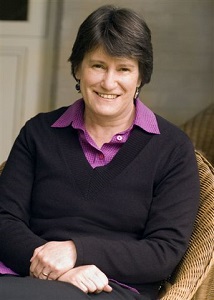Onafhankelijk van geboortedata
De Australische dichteres en schrijfster Judith Beveridge werd geboren in 1956 in Londen, Engeland, en emigreerde in 1960 met haar familie naar Australië. Ze groeide op en ging naar school in de westelijke buitenwijken van Sydney. Later studeerde zij aan de University of Technology in Sydney. Ze besloot toen ze van school ging om zich te wijden aan het schrijven van poëzie en nam parttime banen in kantoren en bibliotheken aan om voor zichzelf tijd over te houden om te schrijven. Haar eerste boek “The Domesticity of Giraffes” (1987) was een enorm succes. Ze won de Dame Mary Gilmore Award, de New South Wales Premier’s Award en de Victoriaanse Premier’s Award in 1988. Voor haar vierde boek “Wolf Notes” (2004) ontving zij de Victorian Premier’s Award en de Age Book of the Year Award voor poëzie. Beveridge heeft creatief schrijven gedoceerd aan de University of Technology, Sydney, de University of Newcastle en de University of Sydney, evenals aan hogescholen. Ze co-redigeerde de poëzie bloemlezing “A Parachute of Blue” (1995) en heeft ook meegewerkt aan de poëzietijdschriften Hobo en Kalimat. Ze was lid van de Literatuurraad van de Australische Raad en werd in 2005 poëzie-editor van het literaire tijdschrift Meanjin.
The Kite
Today I watched a boy fly his kite.
It didn’t crackle in the wind – but
gave out a barely perceptible hum.
At a certain height, I’d swear I heard
it sing. He could make it climb in
any wind; could crank those angles up,
make it veer with the precision of
an insect targeting a sting; then he’d
let it roil in rapturous finesse, a tiny
bird in mid-air courtship. When
lightning cracked across the cliff –
(like quick pale flicks of yak-hair
fly-whisks) – he stayed steady. For
so long he kept his arms up, as if
he knew he’d hoist that kite enough.
I asked if it was made of special silk,
if he used some particular string –
and what he’d heard while holding it.
He looked at me from a distance,
then asked about my alms bowl,
my robes, and about that for which
a monk lives. It was then I saw
I could tell him nothing in the cohort
wind, that didn’t sound illusory.
For Rilke
You can cup your ear in your hand
and hear your voice turn all light and clear
in its depths —
but we hear nothing, just the noisy world.
And the world loves to be noisy.
It loves to make a clatter,
to play itself with our tongues
its diamond styluses
loudly
and for long periods.
But you are your own quiet singing.
The world sets speakers above our heads
(even when we sleep)
blaring at tremendous decibels —
and we can’t hold out against it,
in the morning
the words of its song
pummel our lips awake.
Our hearts—they’re like utensils
taken from their original uses
and put into the world’s jug-band.
Listen to us: we are like bottles
filled to different levels and then struck
for our various resonances:
not like you, poet —
your voice pure as a tuning fork
independent
of what it’s struck off; the gentle
absolute humming of steel
against which we are, to ourselves
severe grating, unbearable
dissonance.

